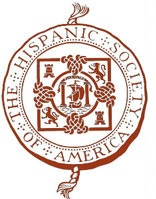
Leading the Way by Expanding Abroad
By Nick Klagge
PUBLISHED MARCH 3, 2008
Illustration by Jona Mici
 About a month ago, I opened up the New York Times Web site and saw the headline, “U.S. Universities Rush to Set Up Outposts Abroad.”
About a month ago, I opened up the New York Times Web site and saw the headline, “U.S. Universities Rush to Set Up Outposts Abroad.”Excited to read about the latest exploits of cosmopolitan Columbia and its swashbuckling president, I clicked through. The opening paragraphs, to my irritation, described NYU President John Sexton securing a $50 million gift to build a satellite campus in Abu Dhabi. OK, OK. I got impatient. Control-F and C-O-L found me “college,” but as my fingers tapped out the rest of “Columbia,” I was barraged with apologetic little beeps from my computer, admitting its failure in the task I had given. My alma mater’s name was nowhere to be found.
The unfortunate reason is that while Sexton was squeezing petrodollars out of the eager Middle Eastern investors who were begging him to expand his university into their cities, Lee Bollinger was probably back in Manhattan, trying to squeeze zoning concessions out of city bureaucrats who were begrudgingly considering allowing him to expand Columbia within its own city.
Fighting for the Manhattanville expansion plan has monopolized Bollinger’s political capital as well as the University’s financial capital, leaving very little to back up the president’s earnest desire to make Columbia a more global university.
This lack of material support has led the University to pursue an agenda of projects that, while undoubtedly globally themed, have also been inwardly focused. Perhaps it is just an embodiment of New York chauvinism, but the University’s signal global accomplishments, such as the World Leaders Forum and the residency of former Czech President Vaclav Havel, have been designed to bring the best of the world to campus rather than take Columbia out into the world. Making Columbia a more global university, as opposed to just a better university, will require expanding its global reach and influence, and thus will require more outward-looking policies.
The most prominent of Bollinger’s efforts to extend Columbia’s interaction with global issues was last fall’s visit by Iranian President Mahmoud Ahmadinejad. Hosting the controversial leader was a bold move, but the event was a microcosm of Columbia’s inward focus. The visit galvanized the campus, touching off intellectual debates about free speech and giving students the opportunity to see a highly influential leader and to challenge his views. Yet when Ahmadinejad invited Bollinger to visit Iran, he quietly rejected the invitation, citing “security and other concerns,” according to the Washington Post.
To be fair, there are certainly legitimate security concerns about visiting a hostile country like Iran. But given enough will and effort, they are surmountable. One need only look to last week’s performance by the New York Philharmonic in North Korea to see that such a visit can not only be accomplished, but incredibly powerful. While the Philharmonic’s visit was almost entirely artistic in nature, it managed to also make a strong political statement, as the musicians performed only on the condition that the event be broadcast on TV and radio throughout North Korea. The orchestra showed respect for its host culture, playing a Korean folk song as well as “An American in Paris,” yet its visit did nothing to lend legitimacy to the country’s despotic leader, Kim Jong-il.
Even if the logistics of visiting Tehran had proved impossible, Bollinger could have made some other globally visible response to Ahmadinejad, perhaps in some neutral Middle Eastern site, had he really desired to do so. Such an act would have presented Columbia to the world as an institution of academic diplomacy, a prominent voice for values such as intellectual freedom and open discourse. As it was, observers saw Bollinger call on Ahmadinejad to defend his views in a hostile situation and then decline to reciprocate.
The administration has recently made a few positive, outward-looking steps toward making Columbia a more global university. During the 2007 World Leaders Forum, the Office of Undergraduate Admissions made presentations in seven foreign cities, and President Bollinger hosted a major alumni event in Paris with several of the University’s most prominent figures. Yet a simple comparison of the scale of these events to the scale of the Manhattanville expansion effort, or even more unflatteringly to the scale of NYU’s satellite campus in Abu Dhabi (set to open in 2010), indicates clearly where global expansion stands on Columbia’s priority list.
Bollinger has spoken about the possibility of building satellite campuses abroad, but he casts the project as a long-term goal—something we should be evaluating “at the end of the twenty-first century,” perhaps. The administration has expressed doubts about the possibility of maintaining the caliber of a Columbia education on satellite campuses. There is a certain appealing logic to this point of view and to the University’s current intensive focus on Manhattanville. It sounds plausible to say that Columbia would be foolish to set its sights abroad until it is satisfied with its situation at home. Yet that line of reasoning abstracts from the fact that the University is not operating in a vacuum, but rather in a fiercely competitive environment with hungry rivals like its downtown neighbor.
Columbia’s administration would be wise to remember that there’s a word for institutions that try a new and untested idea—even before they’re sure it will work—because they believe in its promise. They’re called leaders.
The author is a member of the Columbia College class of 2007 and served as managing editor of Spectator’s 130th Managing Board.
TAGS: Global University, Manhattanville
http://www.columbiaspectator.com/node/29688








+(3).jpg)



.jpg)
+(3).jpg)


No comments:
Post a Comment